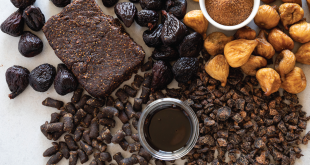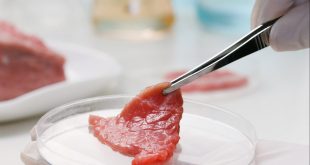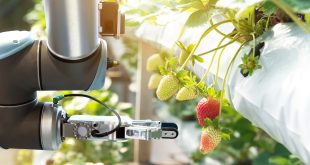University of Guelph Students to Develop Innovative Food Concepts with Industry Mentors
As part of an annual project, students from the University of Guelph presented their original food product concepts to a panel of industry mentors in October. Students from the Food Science, Marketing, Nutrition and Engineering programs will work in teams to turn their ideas into prototypes, culminating in a final competition in March 2018.
“Our goal is to provide students with a collaborative experience that addresses current trends and challenges in the food industry,” says Lisa Duizer, Department of Food Science Associate Professor at the University of Guelph. “By making this an interdisciplinary project that involves University of Guelph students from various programs, we are also demonstrating the diverse and interesting career opportunities that exist in food processing.”
Each student team is responsible for developing a product that fits into a food category currently undergoing significant industry growth and interest: vegan; vegetable proteins; convenient indulgences; breakfast; beverage; and snacks. In March 2018, each student team will present their product for a taste test competition to mentors and judges, along with a business case and marketing plan.
New this year is the addition of six mentors from the southwestern Ontario region who are food industry experts. The mentors include: Rob Bianchin, Vice President at Blendtek Fine Ingredients; Daryl Holmes, a founder and former COO and co-CEO at Nealanders (now Caldic Canada); Brian Jones, Director at BAJ Group Inc.; Christina Marsigliese, Product Developer at the Guelph Food Innovation Centre; Derek Vella, Product Developer at Loblaw Companies Limited; and Dr. Tyler Zemlak, Technology Transfer Officer at the University of Guelph.
CETA to Help Canada Food Exports Grow in Europe
Minister of Agriculture and Agri-Food, Lawrence MacAulay, held a 10-day European agricultural trade mission in October as part of an effort to build on the momentum of the Canada-European Union Comprehensive Economic and Trade Agreement (CETA)’s provisional application.
“The trade links established by Canadian companies and exporters of agricultural products here in Europe are vital to expanding and diversifying export markets for Canada’s agriculture and agri-food products,” said MacAuley.
Canadian industry estimates CETA will boost agriculture and agri-food exports by up to $1.5 billion annually. The agreement will give the sector a competitive advantage in the EU, and will help Canada move toward meeting its target of growing agri-food exports to $75 billion annually by 2025.
New Low-Sugar Glucose Syrups to Reduce Product Sugar Content
Ingredion Incorporated introduced a new line of low-sugar glucose syrups in North America in October. Its VERSASWEET low-sugar glucose syrups enable manufacturers of confectionery, dairy, ice cream, and baked goods to achieve reduced grams of sugar on the Nutrition Facts panel by formulating with low-sugar corn- or tapioca-based glucose syrups that, compared to standard glucose syrups, have a lower percentage of mono- and disaccharides, also called DP1 + DP2.
More than 80 per cent of consumers are checking the sugar content of foods and beverages before making purchases, the company said in a press release, citing a 2017 Mintel Sugar Reduction Trends report.
“The challenge for food manufacturers has been to reformulate to a lower sugar product with minimal or no changes to the ingredient declaration list or existing processes,” says Nate Yates, Director of the Sweetness Springboard, North America at Ingredion. “VERSASWEET can help manufacturers overcome this challenge when they are already using glucose syrup.”
Wageningen Opens Research Facility for Quality Control of Fresh Produce
Wageningen Food & Biobased Research opened its new research facility for quality control in the fruit, vegetable and flower sector in the Netherlands in October. The facility brings together knowledge and expertise in post-harvest technology and agro-food robotics. The company says the need for quality conservation is growing worldwide and it can help food companies keep their products fresher and reduce waste.
“Companies benefit from a sustainable chain in which quality during storage, transportation and at point-of-sale is optimally controlled. Food losses are reduced and the availability and volume of quality food for the global population increases. Companies also enjoy a stronger international market position,” says Raoul Bino, General Director of the Agrotechnology & Food Sciences Group at Wageningen University & Research.
Wageningen Food & Biobased Research has been researching the quality of fresh vegetables, fruits and cut flowers for more than 80 years nationally and internationally. Wageningen experts coordinate the GreenCHAINge Fruit & Vegetables research program which creates smart chains that, via improved quality control, enable manufacturers to deliver quality fruit and vegetables throughout the year. Its Cool – Research on the Move initiative developed with Fontein BV is a mobile research facility that allows companies and governments in emerging countries to significantly increase the quality and shelf life of their products, expanding existing markets and creating new ones.
 Canadian Food Business
Canadian Food Business




